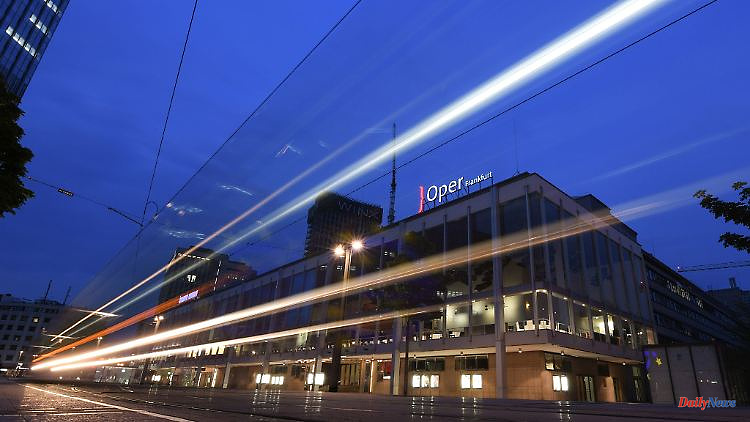First theaters suffer from the corona pandemic, now the next crisis follows. The high energy costs are also a challenge for the theaters in Hesse. One billion euros from the federal government is intended to remedy the situation - and savings.
Wiesbaden (dpa/lhe) - Some rely on body heat, others on mulled wine: Hessen's theater facilities are already fighting rising energy costs. "In the medium term, the stages will most likely have to change their production behavior," said Claudia Schmitz, director of the German Stage Association, the German Press Agency. She assumes that the resulting additional costs "will be immense".
In order to absorb cultural institutions, financial support is therefore needed in the short term. If it is up to Minister of State for Culture Claudia Roth (Greens), it should come soon. One billion euros is earmarked for this in the Economic Stabilization Fund. The federal and state governments had agreed on relief measures last week.
"The energy culture fund set up by the federal and state governments helps theaters and orchestras to compensate for energy costs in the short term," said Schmitz. In the long term, too, politicians have a responsibility to continue to support the theaters. "The energy crisis brings the renovation backlog of the stages to light - here perspective support programs for the energy renovation of the theaters and concert halls are needed," explained the director.
The State Theater in Wiesbaden is looking forward to the winter with concern. "Energy costs have risen by 40 percent," said a spokeswoman. The situation is also aggravated because the prices for building materials for stage sets are also increasing. This year alone there was an increase of 30 percent compared to the previous year.
In order to save costs, the theater has to reduce energy consumption by around 20 percent compared to 2019. In order to achieve this, the room temperatures should be reduced to 19 degrees. However, a lower room temperature alone is not enough. Savings should also be made in the area of lighting. "A modernization of the lighting fixtures would bring the highest savings potential. However, enormous investments would be necessary here."
The Frankfurt Theater is also taking steps to reduce energy costs. "We have installed LED lamps in the rehearsal stages, the advertising boards are switched off from 10 p.m. to 6 a.m. and certain things are simply rebuilt during the break," said a spokeswoman. How exactly the measures will affect energy costs is still unclear.
But even in Frankfurt it no longer stays cozy and warm. The room temperature is initially lowered to 19 degrees. "Surely nobody will freeze or have to sit there with a jacket," said the spokeswoman. The number of visitors plays a major role, since the warmth of the group also influences the individual perception of cold.
In Marburg, people don't work with group warmth, but with mulled wine. At least when it gets really cold. Already in the previous winters, guests of the theater were offered mulled wine to warm up. "We are used to a certain flexibility with the cold," said director Carola Unser-Leichtweiß, who runs the Hessian State Theater in Marburg together with Eva Lange.
So far, the picture there has been rather calm. Nevertheless, efforts are being made to consider measures that ensure savings in energy expenditure. "We see it more as an opportunity to see how sustainability is going. The crisis is like an accelerator," emphasized the director.
The energy crisis does not only affect the theater itself. Customers are also struggling with inflation. "In fact, it is a reality that subscriptions are canceled because people are afraid of not being able to pay the rent or the utilities," says Eva Lange. So now people are weighing up what they spend their money on. In addition, there are late effects of Corona: "One has forgotten the social practice of going to the theater to a certain extent," says Lange.
According to the Ministry of Science and Art, the pre-corona level has not yet been reached. "Many cultural institutions, including theaters, are currently suffering twice," it says. Efforts are currently being made to practically work out the implementation of the billion-euro decision by the federal and state governments: "Details on who will benefit from these funds and how they can be applied for should be worked out quickly". The state government is appealing to cultural institutions to save up to 15 percent in heating energy and 5 percent in electricity consumption in the coming heating period.
All the savings should not deter you from going to the theater. "Art and culture can give hope in times of war and crisis, show a perspective and sometimes just let worries and fears be forgotten for a few hours," emphasized the ministry.












